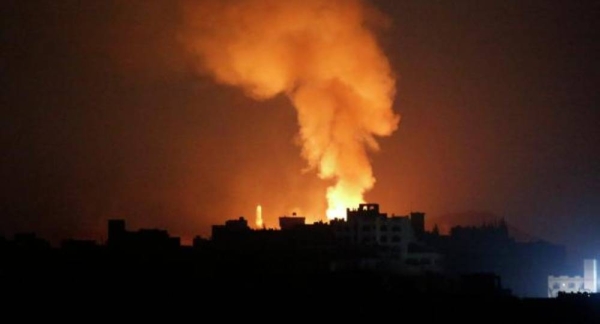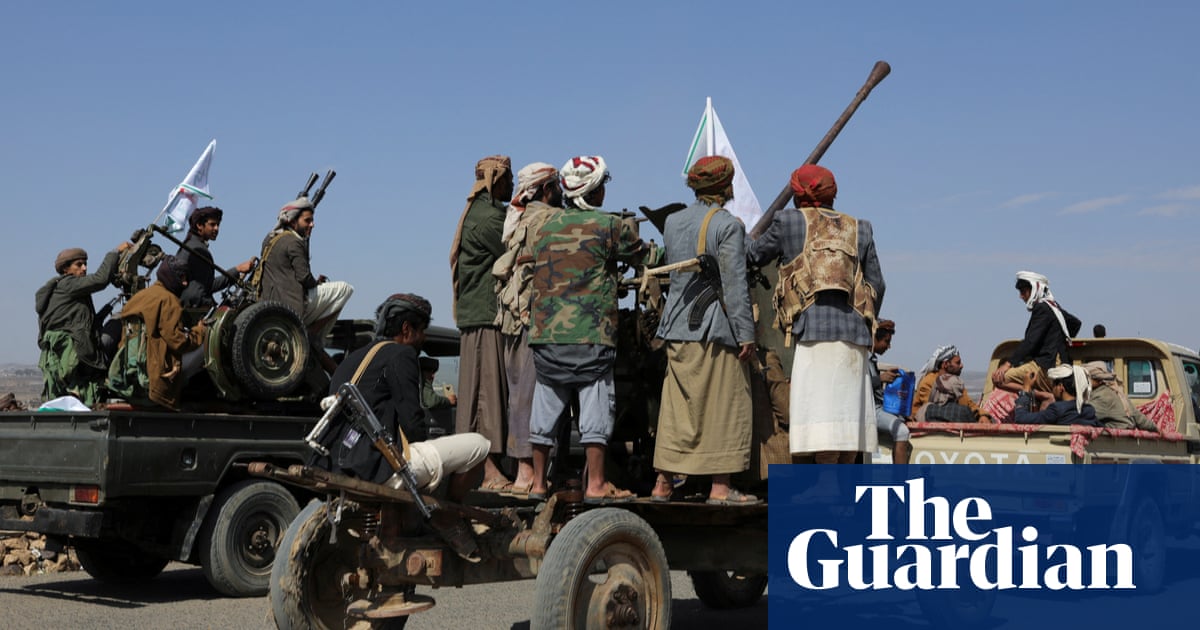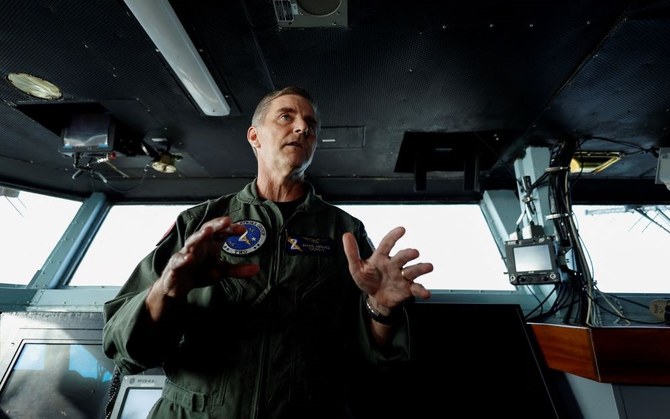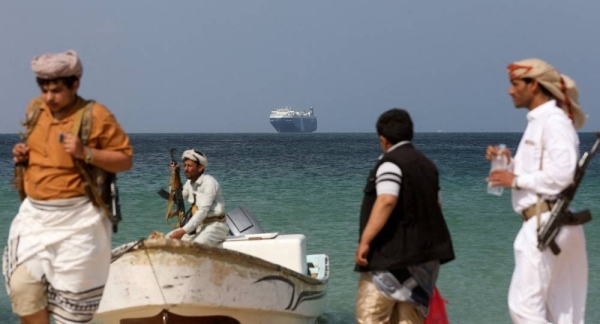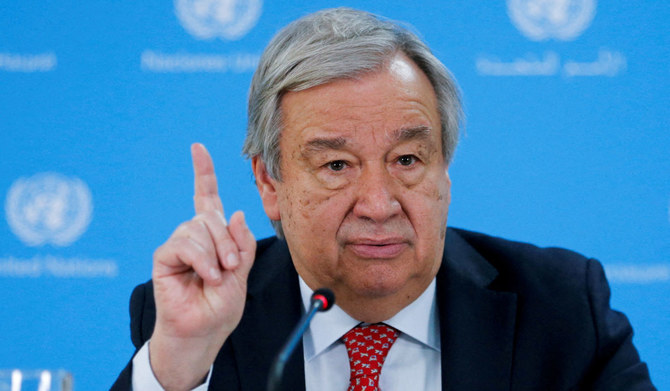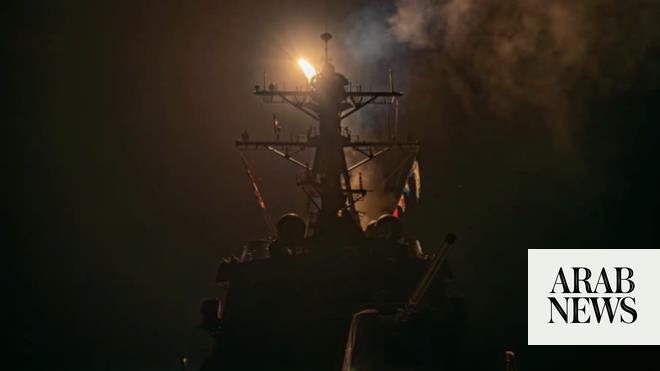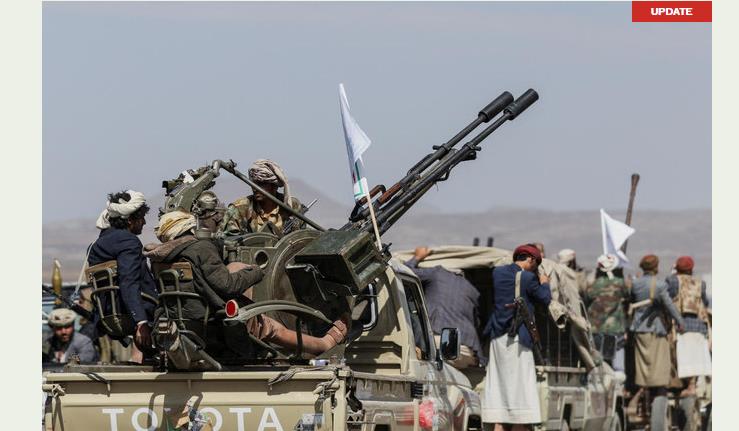
Strikes hit 36 Houthi targets across 13 locations in Yemen
AL-MUKALLA: Yemen’s Houthi militia on Sunday vowed to undertake more reprisal strikes against the US and UK, as well as to continue Red Sea assaults, after scores of military targets in regions under its control were targeted overnight.
On Saturday night, the US, UK and other allies conducted the largest round of strikes on Houthi-controlled parts of Yemen since hostilities broke out, striking 36 targets in 13 places to pressure the militia to cease attacking commercial and naval ships in the Red Sea. The countries said in a joint statement that the attacks hit “sites associated with the Houthis’ deeply buried weapons storage facilities, missile systems and launchers, air defense systems and radars.”
US Central Command reported that at 4 a.m. local time on Sunday, its forces hit a Houthi anti-ship cruise missile on the ground in Yemen that was aimed against ships traversing the Red Sea.
According to Houthi military spokesperson Yahya Sarea, US and UK warplanes conducted 48 airstrikes overnight, including 13 airstrikes in the capital Sanaa and Sanaa province, nine in the western province of Hodeidah, 11 in the southern Taiz province, seven in the central province of Al-Abayda, nine in the northern province of Hajjah and one in the northern province of Saada, the Houthi militia’s heartland. Sarea threatened to retaliate strongly against US and UK ships in response to the attacks.
“The Armed Forces reaffirmed that the American-British attacks would not deter Yemen’s moral, religious and humanitarian support for the resolute Palestinians in the Gaza Strip,” the Houthi-controlled official news agency quoted Sarea as saying.
Other Houthi officials have made the same firm commitment to retaliate against the US and UK attacks.
While the US and UK were bombarding Sanaa, Ali Al-Qahoum, a member of the Houthi Political Bureau, threatened to engage in an “open war” with the two countries in retaliation for the latest barrage of airstrikes, claiming to have “superior defensive military capabilities” that can deal devastating blows.
“It is an open war, and they must suffer the brunt of Yemeni attacks and reactions, which are continuous and unabated, with the hand on the trigger.”
Sanaa residents posted videos on social media showing large balls of fire and thick smoke billowing from bombed military bases overlooking the city, while others reported thunderous explosions that shook their homes.
“Where is the bombing in Sanaa? The house shakes, and there are scary sounds,” said Fatima Al-Aghbari, a Sanaa-based journalist, on X when the planes began bombing the capital.
The Houthis have launched dozens of drone and missile strikes on navy and commercial ships in the Red Sea, Bab Al-Mandab and the Gulf of Aden, as well as seized a commercial ship in November in what the Yemeni militia claims are actions in support of Palestinians aimed at forcing Israel to lift its Gaza siege.
Announcing the launch of the latest wave of strikes on the Houthis, UK Foreign Secretary David Cameron demanded on Sunday that the Yemeni militia stop attacking ships in the Red Sea. “Their reckless actions are putting innocent lives at risk, threatening freedom of navigation and destabilizing the region. The Houthi attacks must stop,” Cameron said on X.
Yemen experts believe the Houthis will continue to push the US and UK into launching additional attacks on the country in order to reinforce their narrative that they are fighting the US and Israel, and are the only defenders of Palestine, in an attempt to win hearts and minds in Yemen.
“For decades, the Houthis have been claiming they are at war with the US. The US airstrikes validate their claim. The Houthis don’t care about the negative impact on Yemenis,” Nadwa Dawsari, a conflict expert and a non-resident scholar at the Middle East Institute, told Arab News.





